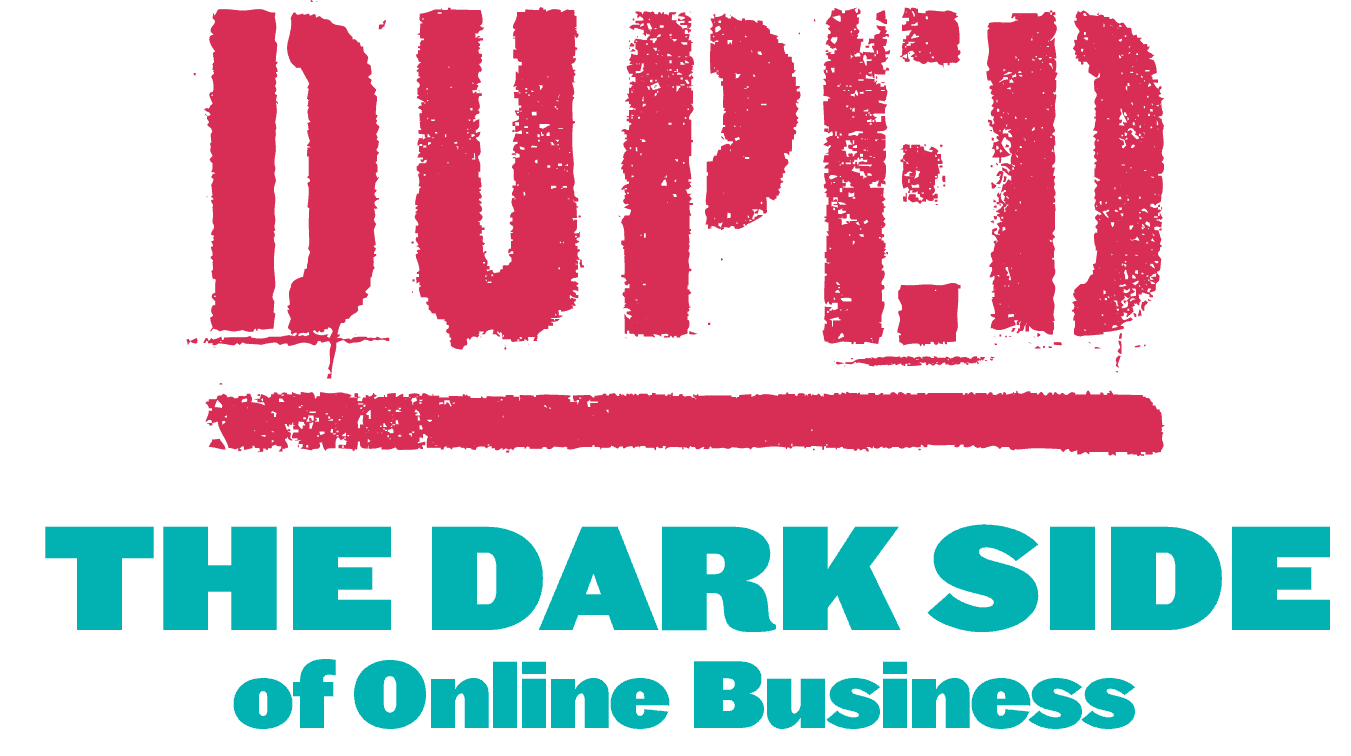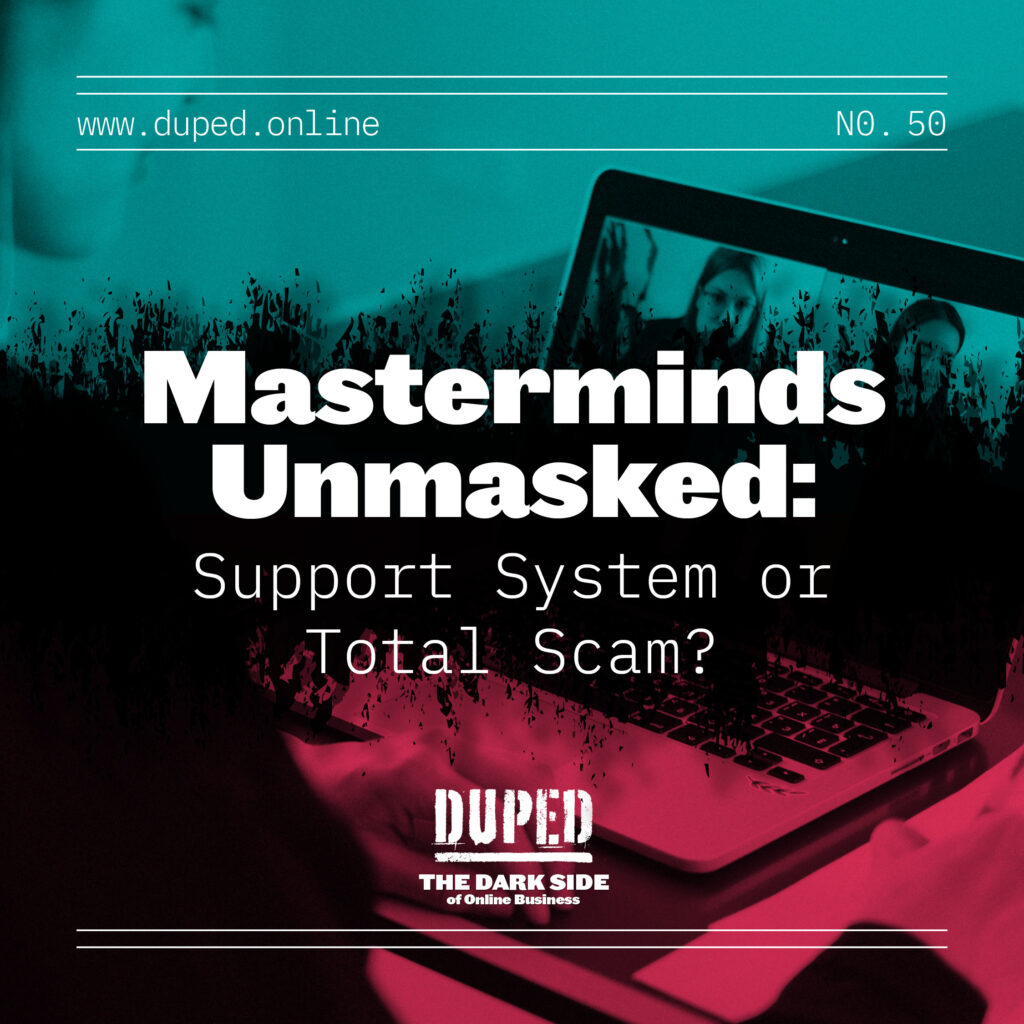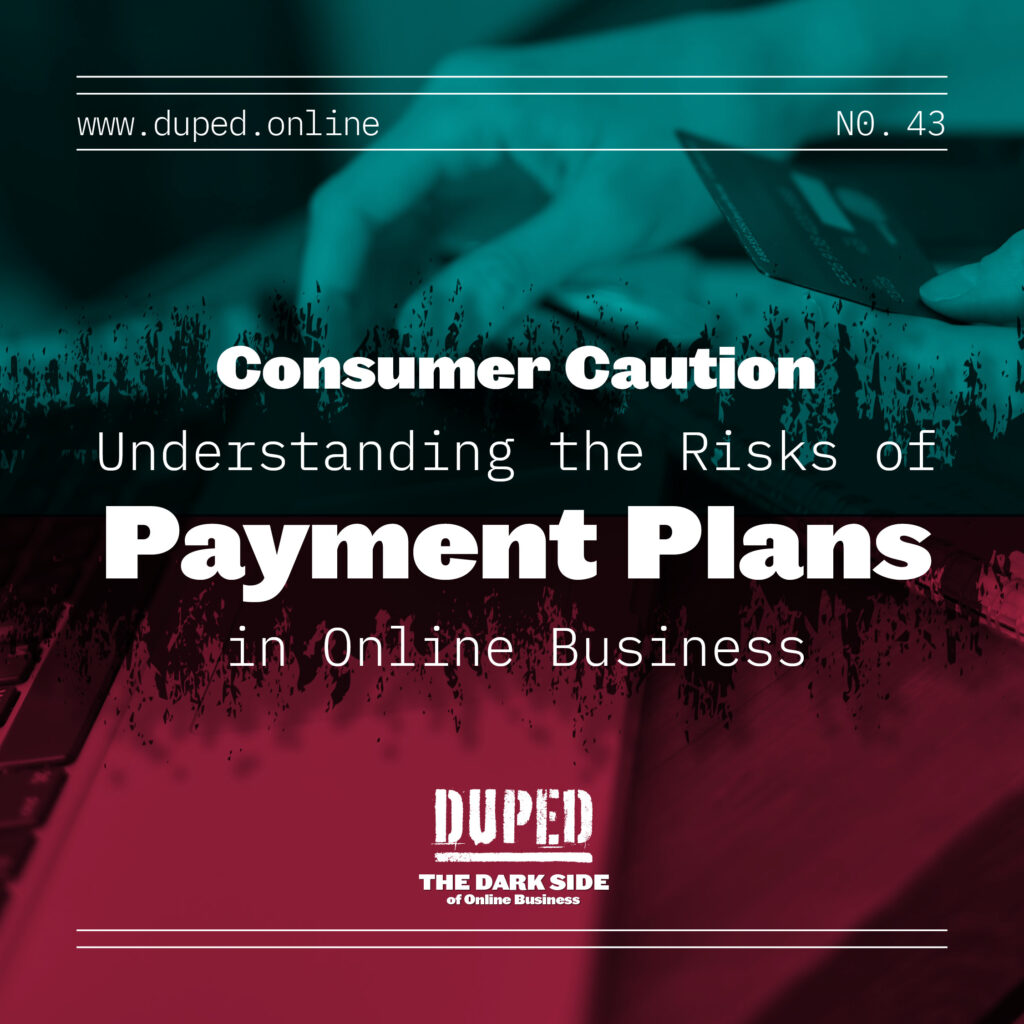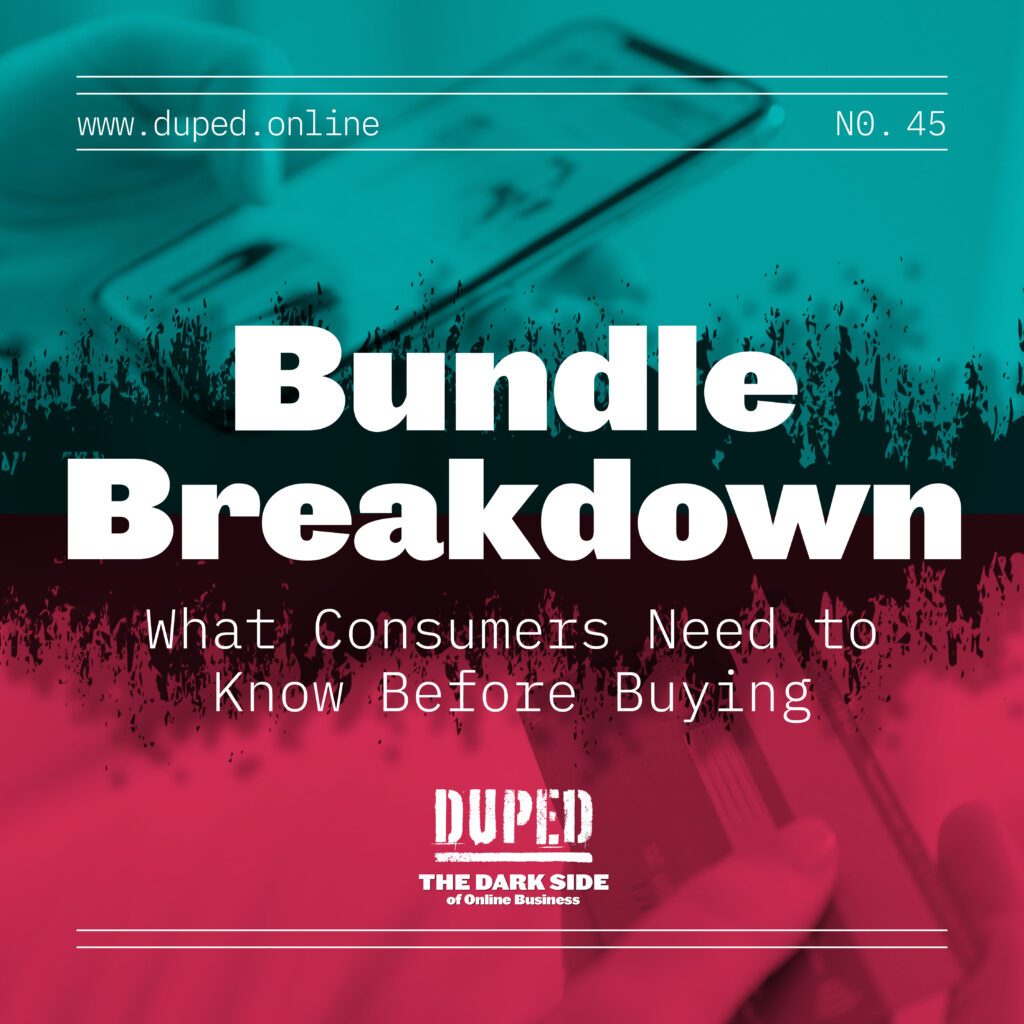
The Grift of Group Programs
Over the last 10 years, there have been countless ways that celebrity entrepreneurs have sold to us, courses, masterminds, memberships and so many more. These trends come and go, and one of the big ones right now is group programs.
In this episode of Duped, we’re digging into all things group programs including the potential grifts of these programs that you need to know about right now.

When it comes to running a business, it’s completely natural and normal that you get support along the way. Even if you run a solo business, you shouldn’t be going it alone.
But as usual here on the show, there’s a dark side to getting support. Because business owners and entrepreneurs need everything from coaching to consulting to courses, an entire industry exists to sell products and services.
The Entrepreneurship Industrial Complex is alive and well, and if you’re interested, you can do a deep dive into our past episode on the work of Hartman et al, and this $10 billion dollar a year industry in the U.S.
So, where does the dark side come in? Surely getting support can’t be a bad thing?
There are a lot of different ways education and support for the online business audience are delivered, but one that’s becoming increasingly popular is group programs.
What is a Group Program?
Before we go any further, we want to be clear on what we mean when we’re talking about a group program, and acknowledge that this is not a new delivery model.
Group programs have been around as long as I’ve been in the online space, but in the last two or three years, they’ve quickly grown in popularity.
There are a few key reasons we’re seeing more and more group programs, but first, let’s talk about the structure of these programs.
They can be anywhere from a small group to a massive group with 100s or even 1000s of people. Typically, there are a number of things included from group calls to an online community to a set curriculum.
A group program is usually designed to be a delivery model for a one-to-many experience as a way to scale a business. The features don’t matter as much as what the intent is behind it.
This brings us to the question of why are we seeing more and more group programs?
A primary driver of the shift to group programs is the fact that fewer consumers are willing to dish up $2k or more for a course. Celebrity entrepreneurs recognized that the market was evolving and that their potential clients wanted more support.
Historically, low course completion rates in the industry have been low, and we dug into that in detail in last season’s episode on Courses: Moneymaking Dream or Business Nightmare.
That combined with high default rates on payment plans many higher prices courses meant they had to rethink how they were delivering these offers.
What we see now is that these courses have been turned into group programs in an effort to solve these problems.
The Big Promise of Programs
Before we go any further, we want to be clear that we’re not anti-group program. What we’re not here for are the bullshit big promises that go on in the marketing and sales for so many of these programs.
For marketing, a cornerstone of these programs is the use of income claim marketing. First, they claim that they made X dollars using this model and they’ll teach you their secrets. Then, they use their client’s successes as proof that the model works.
The promises that so many of these programs make are completely outlandish. There’s no way to verify the results, and there’s zero real context for the entire story.
The stories we see are success stories. We don’t hear about the failures thanks to what’s called Survivorship Bias. Coined by Abraham Wald, this is a cognitive shortcut where we assume that the visible “successful” group is the entire group.
In the case of these programs, we need the testimonials and assume we’ll have the same results. That issue is compounded by the fact that we have a big price tag to go along with these big promises.
On average, many of these programs start at $5k and are designed to be done over the course of six months or a full year. And honestly, I don’t think many of these programs actually need to be that long, they’re that long to justify both the price and to create a workable payment plan for most people.
The other part of this is that this is prestige pricing. The price suggests quality and exclusivity so we assume we’ll have a better experience and get better results, even if that’s completely untrue.
The other part of the promise that’s included with many of these group programs is that they’re going to show you how to scale your business with group programs. They’re literally promising that you’ll be able to hit those big revenue numbers in the testimonials by using their proven process.
I really don’t see anyone talking about how this is a massive shift for a lot of businesses to go from 1:1 services to selling a group program. You need an audience, you need a content plan, and you need a lot of things that aren’t just magically going to happen because you sign up for a program about programs.
The Problem with Programs
We touched on the marketing aspects of these programs, but we also need to dig into both the sales practices and the customer experience.
On the sales side, if you look at the majority of these group programs, it’s a literal laundry list of the sketchy sales tactics we talk about here on Duped.
Our biggest beef with these programs is the constant focus on your mindset and how if you’re not willing to open up your wallet, you’re not all in on your business.
That’s total BS. The “invest at all costs” message is designed to push you into a sale and literally convince you to buy when you’re not ready.
As a reminder, anything that’s designed to override your agency to make the sale is a red flag. They’re not helping you, they’re coaching you across the finish line using cult-like tactics including love bombing, guilt, shame, fear, and flat-out financial exploitation.
It may seem dramatic to talk about financial exploitation, but I want to call something out here.
Anyone coaching you through how to make an investment so you can enroll in their program should be treated as suspect.
There are literally coaching finance companies that are designed to give you access to credit so you can buy. They will finance people regardless of their credit score, which tells you exactly what the game is. It’s the online equivalent of payday loans.
Then there’s the customer experience side of things, where things get super messy.
One of the most common complaints I’ve heard (and believe me I’ve heard a lot of them, I’m the Better Business Bureau some days) is that they feel like there was a bait and switch.
A lot of the celebrity entrepreneurs offering these programs use personal brands. So even if you know their team is involved, if there are pictures of that one person all over the sales page, it may feel like you’re going to get more of them than the honor of their presence on an occasional group call.
Then, there are the group calls and how with bigger programs it’s really hard to get feedback or get your question answered. Plus, not everyone does well in this type of setting and it’s not uncommon for a select few to dominate, especially if there’s poor facilitation.
And don’t even get me started on the generalized advice that’s often dished up. I have so many stories of where I was literally getting told to do things I’d already done because the person leading the program didn’t anything about me or my business.
Before You Buy a Group Program: Ask These Questions
To wrap up, we wanted to leave you with some questions to ask before you consider enrolling in a group program.
- What’s the program promise? Do I know what exactly I will get from this program? Is it specific to me and my needs?
- Do I need to learn this in a group setting? Not everything needs to be (or should be) learned in a group. Is this compatible with your learning style? Can you get 1:1 support or a lower-cost DIY course that would do the job?
- Are they using income claims? Does this seem realistic or like a fantasy that this could happen for your business?
- Is this in my budget? Seriously! Don’t be sucked in by payment plans that seem doable, consider your budget carefully and if you can afford to invest even if you’re not one of the wild success stories.
- Who do I really work with? Consider the structure of the program and who will be providing you with support. How are they qualified to support you? What access do you get to the group leader if any?
Links for this Episode:
Join the

Patreon

for only $7/month and get a
monthly bonus episode,
behind-the-scenes content
and more.










